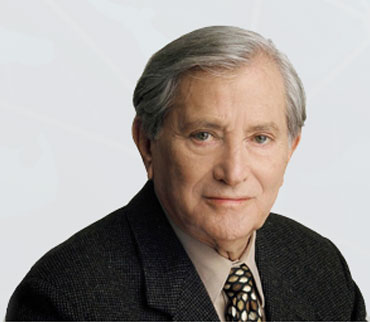Eli was born in Jerusalem and grew up in Tel Aviv, where he completed his studies at Hacarmel elementary school and Ironi Alef municipal high school. With the outbreak of the War of Independence in 1948, he joined the Nahal (“Pioneering Fighting Youth”) Brigade together with a group of friends from the Hebrew Scouts youth movement. Following a short agricultural training program, the group founded Kibbutz Tel Katzir in the Jordan Valley, adjacent to the border with Syria. At Tel Katzir, Eli married Dalia, also a member of the group. In October 1953, the couple left the kibbutz and moved to Tel Aviv.
In the same year, Eli Hurvitz began his career in industry as a bottle washer at the Assia pharmaceuticals company, and after completing his studies, rose to the company’s management team. Taking a long-term view of the importance of establishing a leading role in the Israeli market and of laying the foundations for future international expansion, he initiated the acquisition of the Israeli pharmaceutical companies Zori and Teva, and their merger into a single company, Teva Pharmaceutical Industries Ltd., of which he became CEO in 1976. Over the course of his long tenure as CEO and chairman of the board at Teva, Eli displayed outstandingly innovative strategic leadership qualities, as evidenced in the acquisition and merger of pharmaceutical plants throughout the world, and the adoption of a culture of excellence throughout the company’s operations. Consequently, Teva became Israel’s largest pharmaceuticals producer, and eventually the largest generic drug company in the world.
Eli’s sense of social responsibility and his strong commitment to humanist and Zionist values propelled him to volunteer for a wide variety of public organizations He served as a combat soldier in all of Israel’s wars, rising from the rank of private during the War of Independence to the rank of lieutenant-colonel and deputy commander of an artillery support brigade as an IDF reservist during the first Lebanon War.
Recognition of Eli’s rare talent as a leader and strategist led to his appointment to numerous public positions, alongside his work at Teva. As president of the Manufacturers Association of Israel, he played a key role in the establishment of the historic program for stabilizing Israel’s economy in 1985–86. Among other positions, he served as chair of the board of trustees of the Weizmann Institute of Science; as a member of the international council of the Belfer Center for Science and International Affairs at Harvard University’s Kennedy School of Government (2002–2005); and as chair of the “Israel 2028” Commission, whose conclusions were published and presented to the prime minister in a report titled Israel 2028: An Economic and Social Vision and Strategy in a Global World.
Eli’s extensive work in the public and industrial spheres was recognized with a series of awards from academic and public institutions. He held six honorary doctorates, and in April 2002, was awarded the Israel Prize for Special Contribution to Society and the State in recognition of his life’s work.
Eli had a special relationship with the Israel Democracy Institute, which he considered a vital institution for strengthening Israeli democracy. He attributed particular significance to the Institute's efforts to help the country's leadership make informed decisions and to implement policies based on research and planning, for the benefit of all of Israel's citizens.
For six years, Eli was the chair of the Institute’s board of directors, and was a constant member of the Caesarea Forum up to the very last year of his life.
Eli Hurvitz, born in 1932, died on November 21, 2011, at the age of 79.

 High Contrast
High Contrast
